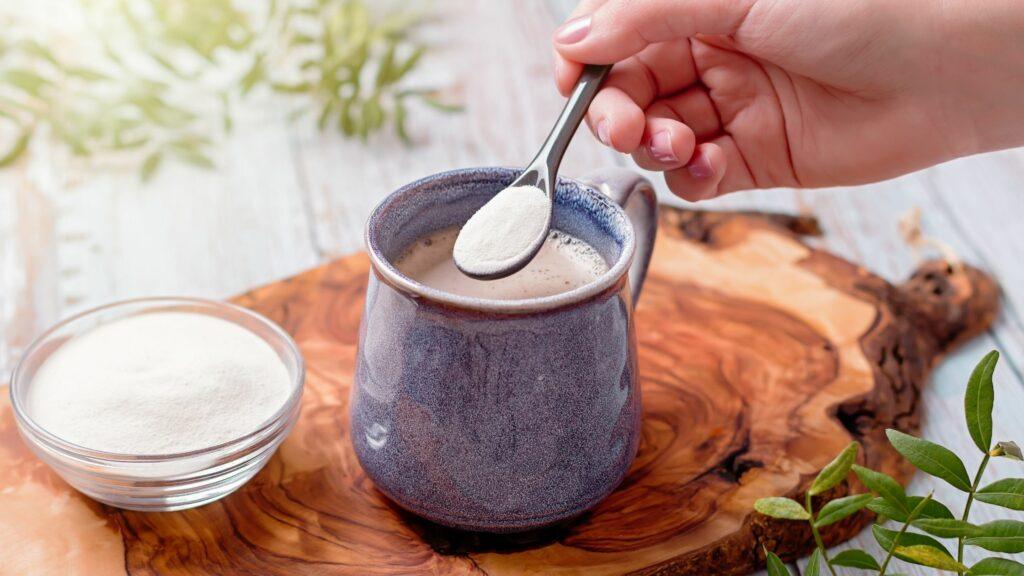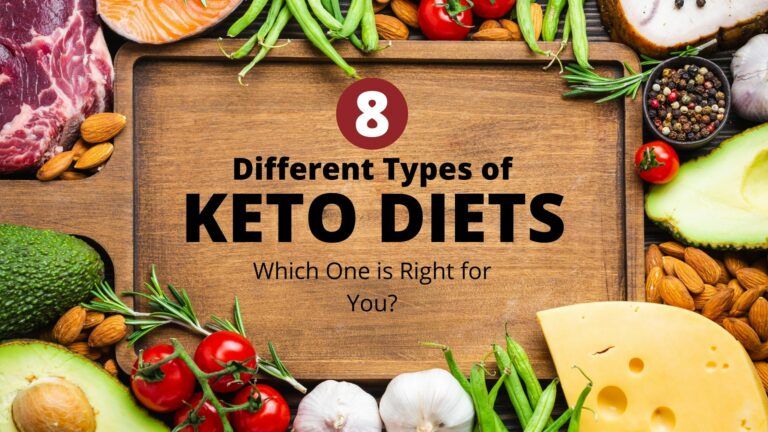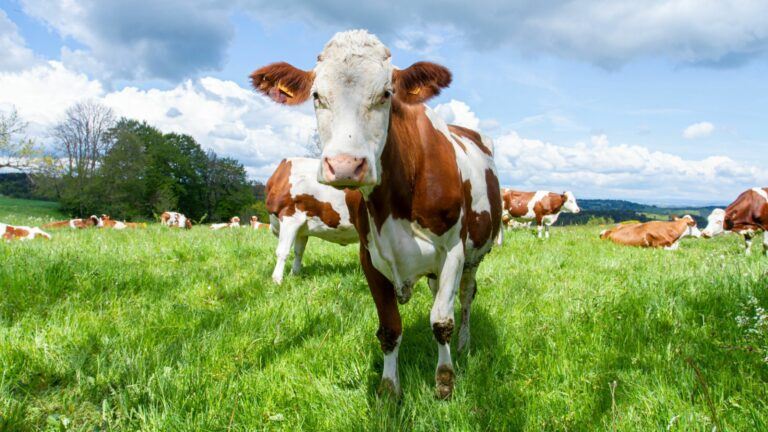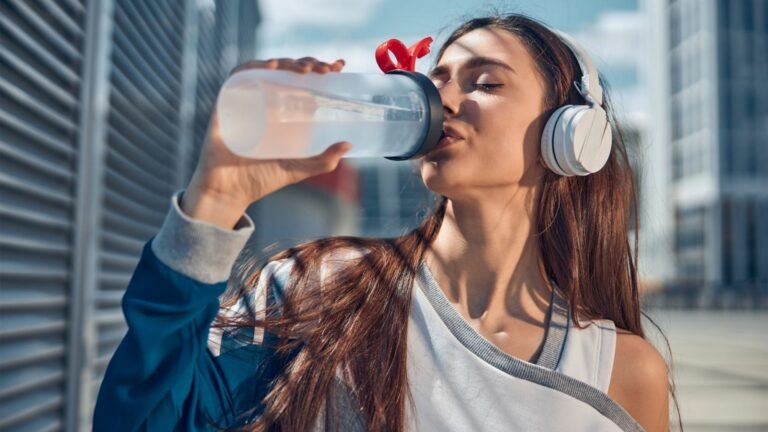Best Natural Sources of Collagen – #7 May Surprise You
Consuming collagen from nutrient rich food sources is the best way to ensure that your body has everything it needs to build new collagen internally.
In this article we will clear up a few of the myths surrounding collagen, provide a list of the 7 best natural sources of collagen, and help you decide if supplementing collagen is worth considering.
Does Eating Collagen Work?
Does eating collagen contribute to increased collagen in our bodies? Well…yes, but not in the way you may think.
Collagen is simply a chain of amino acids bound together into structures called fibrils, and the length and components of these structures vary depending on where in the body they are formed.
To date 28 different types of collagen have been identified, however types 1-5 are the most common, and 90% of the collagen in the human body is type 1.
A common misconception used in marketing is that by eating certain types of collagen we can strategically boost the collagen in target areas such as our hair, skin or nails, but that’s not how it works.
When we consume collagen, it is broken down into individual amino acids before it can enter the bloodstream. Consuming foods rich in collagen ensures that our bodies are getting all of the amino acids and nutrients, in the proper proportions, necessary to build collagen internally.
But…collagen is an incomplete protein; can’t I just eat more complete proteins to help boost collagen production?
While collagen is considered by some to be an inferior protein because it only provides 8 of the 9 essential amino acids, it contains an abundance of the amino acid hydroxyproline, which is only present in small amounts or even absent in other protein sources.
If hydroxyproline is absent or in short supply, your body will not be able to produce collagen. Hydroxyproline is not an essential amino acid, which means it can be created in the body, however it can become conditionally or critically essential if you are unable to create of convert it efficiently.
The 7 Best Natural Sources of Collagen

Nutrients such as vitamin C and copper also help support collagen production, so consuming nutrient rich foods high in collagen is always the best way to boost internal collagen.
#1 – Eggs are a great complete protein source and the membrane that lines the inside of the eggshell is pure collagen. When you boil your eggs, be sure to consume this membrane.
#2 – Red meat is also a complete protein that contains all 9 essential amino acids, and the gristle and connective tissue is made of collagen. Selecting grass-fed pasture raised meats is always recommended. See our top 4 recommended online suppliers here.
#3 – Bone broth is loaded with collagen and other essential nutrients. It is quite easy to make bone broth at home, but there are some high quality premade options on the market including my favorite, Kettle & Fire.
#4 – Oysters and shrimp provide all of the amino acids you need to produce collagen, and are also high in zinc and copper.
#5 – Poultry is another fantastic complete protein source, and the skin, tendons, and cartilage are rich in collagen.
#6 – Wild caught fish is high in amino acids and essential nutrients that support collagen production. Sardines and anchovies, with the skin and bones included, are the gold standard when it comes to collagen supporting foods. For canned options, be sure to select those packaged in water or olive oil.
#7 – Hot dogs. Yep, you read that right. When sourced and prepared properly, hot dogs can be quite healthy, and since they contain a considerable amount of connective tissue, they are also high in collagen. When it comes to selecting healthy, quality sourced hotdogs, two of our favorite brands are Teton Waters Ranch (often available at Costco) and Organic Prairie.
Several of our favorite online meat delivery services also offer high quality hotdogs sourced from grass-fed pasture raised meats that are free of antibiotics, nitrates, and nitrites.
When to Consider Supplementing Collagen
If the natural sources of collagen mentioned above don’t currently make up a large proportion of your diet, or if you have difficulty digesting protein, a high-quality collagen supplement may be worth considering.
Most collagen supplements contain hydrolyzed collagen, which is simply collagen that has been broken down into peptide fragments through the use of enzymes, making them easier to digest and absorb.
Ultimately, there isn’t a lot of scientific evidence that supports the consumption of collagen supplements as a means of boosting hair, skin and/or joint health, and much of the available research has been produced or funded by the same companies that sell the products.
For example, this study boasts that the daily consumption or Pure Gold Collagen reduces visible signs of aging, and while the authors claim no conflict of interest, both the research and the product are produced/funded by Minerva Research Labs.
This connection doesn’t automatically mean that there is bias, but examining the source of the research, and the quality of the journal it is published in (Dove Press in the example above) are critical in assessing the validity of a study.
Another study, still industry funded, but better designed, and published in a more legitimate journal, again suggests that the consumption of a German collagen supplement (Elasten in this case) improves skin structure and function.
One thing worth noting regarding the supplements referred to in these studies, is that in addition to hydrolyzed collagen (collagen peptides), both of these products also contain additional nutrients, including vitamin C.
The reason this is important is that vitamin C is known to support the natural production of collagen in the body. So, are the benefits identified in these studies the result of consuming hydrolyzed collagen, or could they have been achieved by simply boosting vitamin C? Or, does this mean that vitamin C needs to be consumed at the same time as hydrolyzed collagen in order to reap the benefits?
It should also be noted that the second product mentioned above (Elasten) includes a natural source of vitamin C (acerola extract – from cherries), while the Pure Gold Collagen supplement uses a synthetic version (ascorbic acid). Being able to identify natural and artificial sources of nutrients is extremely beneficial when comparing supplements.
Selecting the Best Collagen Supplement

Even though I consume most of the foods listed above regularly, I do utilize a collagen supplement quite often, primarily for convenience, and because I like the texture it adds to certain foods. I enjoy it in my keto coffee and/or keto hot cocoa, and it allows me to increase my protein while keeping my calories in check.
Have I experienced noticeable benefits? I have experienced considerable improvements in my hair, skin, and joints since starting keto, but I couldn’t really say for sure whether or not consuming a collagen supplement has made any difference.
Considering the way I eat, is it worth it? Possibly not.
Will I continue using collagen supplements? Probably, as long as they aren’t too expensive.
Why? Convenience, texture, increased protein, and insurance.
What I Look For in a Collagen Supplement?
#1 Quality sourced – Even though it has been broken down into peptides, it is still important to select collagen from high quality sources.
For example, a bovine or porcine sourced collagen should come from grass-fed pasture raised cows or pigs, an egg sourced collagen should come from pasture raised chickens, and a fish sourced collagen should come from wild fish captured in deep pristine waters far from human populated areas.
Some research has suggested that fish sourced collagen may be slightly more bioavailable than some other sources, namely porcine skin, but research in this area is extremely limited. Fish sourced collagen may not be the best option for those with food allergies however, since it often contains some amount of shellfish.
#2 Other ingredients – Several studies suggest consuming additional nutrients along with hydrolyzed collagen provides the best results. However, as noted above, the quality of these added ingredients can vary and often drastically affect the price.
I prefer to utilize a single ingredient collagen supplement and simply consume it along with food, or I sometimes take a quality whole food multivitamin with my collagen coffee or hot cocoa.
#3 Price – I’m not loyal to a particular brand and have utilized a variety of different products over the years. Vital Proteins Collagen Peptides is one of the most heavily marketed and best selling collagen supplements, but it is also one of the most expensive. I do use this brand occasionally, but only when I catch it on sale at Costco.
Orgain Collagen Peptides is the collagen powder currently in my cupboard. For your convenience it is also available on Amazon.
Collagen FAQ’s
What’s the difference between Hydrolyzed Collagen & Collagen Peptides?
There is no difference. Collagen peptides are produced as a result of hydrolyzing collagen.
Is there any advantage to consuming a multi-collagen?
Ultimately no. As noted above, all collagen contains the same amino acids in roughly the same proportions. While the structure may be slightly different based on where it is sourced from, your body with digest it and restructure it to be used wherever it is needed.
What about vegan collagen supplements?
Although not technically collagen, there are plant based supplements that have been designed to mimic the amino acid profile of animal sourced collagen. These products are generally marketed as “collagen builders” or “collagen boosters”, and commonly contain amino acids and collagen supporting nutrients such as vitamin C, biotin, zinc, copper, vitamin A, and lysine.
I have not found any specific studies on vegan collagen supplements, but there does appear to be quite a bit of anecdotal evidence supporting their benefits.
In my article about following keto as a vegan, I do recommend utilizing both a complete protein supplement as well as a collagen support powder, and I believe Sunwarrior offers some of the best plant based protein supplements on the market. This is also one of the brands I use and recommend for people following a keto lifestyle without dairy.
For convenience, their products are available on Amazon, but they often offer better sales on their website, and you can build up points that can be applied to future purchases if you become a member.
How many of our top 7 natural sources of collagen do you consume regularly? Do you supplement collagen, and if so, which product do you use? Please consider sharing your experience by commenting below in order to help others living a fit keto lifestyle.
Thank you for visiting LiveFitKeto.com. Check back often for new content or subscribe to our newsletter to receive updates on new articles, and if you have found this information helpful, please don’t hesitate to share.







